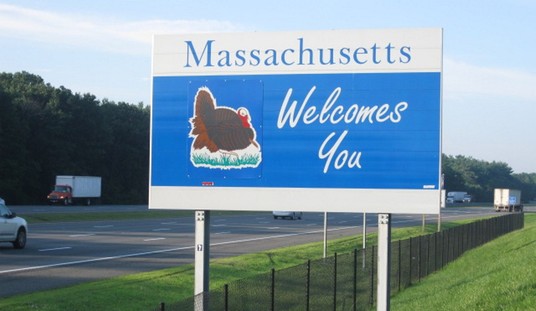=========
=========
Promoted from the diaries by streiff. Promotion does not imply endorsement.
=========
=========
The highly edumacated, certainly better than us riff-raff people at Think Progress are extremely alarmed at the impending doom of global warming climate change!
We don’t have 12 years to save the climate. We have 14 months.
The deadline for protecting our children from a ruined climate is close at hand.
Joe Romm | July 26, 2019 | 8:00 AM
Scientific reality makes clear that the only plausible way to preserve a livable climate — and hence modern civilization — starts with aggressive national and global cuts in carbon pollution by 2030.
But political reality makes clear that such cuts can’t happen instantly — and that global action requires leadership from the United States. After all, the U.S. is the richest country in the world and the biggest cumulative source of heat-trapping emissions over the past century.
With eight years of a pro-science president, Barack Obama, the nation made steady progress on reducing emissions and committing to future reductions, enabling a global climate deal in Paris in 2015. But with just two and a half years of an anti-science administration, national and global progress have both stalled under President Donald Trump, who has begun to abandon the Paris Accord and undermine action here and abroad.
That means November 3, 2020 — the U.S. presidential election — is the deadline for Americans who do not want to destroy the health and well-being of current generations, their children, and future generations. If Trump is reelected, the prospects for the necessary national and global cuts in carbon pollution by 2030 will be gone.
I wondered: what would happen in fourteen months that would be the tipping point? According to Mr Romm, it’s the presidential election, and how President Trump must be defeated, to save the world.
Trouble is, fourteen months from July 26, 2019 is September 26, 2020, more than a month before the presidential election. Had he written fifteen months, that could have been literary license, given that the election is fifteen months and eight days away. But fourteen months? I’m supposed to give credence to the supposedly scientific arguments made by a guy who can’t even count?
Suspecting that someone might alert the website of the boneheaded error, I went ahead and took a screenshot of the headline.
The article author, whatever his pretensions to scientific knowledge, doesn’t really make any scientific arguments. Rather, he has simply parroted what he has read elsewhere.
Andrew Jones, co-director of Climate Interactive, a U.S. think tank that generated some of the scenarios the IPCC used in its report, told ThinkProgress he “definitely” agreed with Mann’s assessment. Rapid reductions means a 30-50% decrease in global emissions by 2030, rather than the 10% increase we are currently looking at.
Now, what does that mean? As I noted here, Emily Atkin, writing in The New Republic, noted that actually doing what the warmunists tell us must be done will require that we all make sacrifices that will prove very unpleasant.
First and foremost, that sacrifice includes paying higher taxes. In an interview with NPR on Friday, host Rachel Martin asked him if he would commit to not raising taxes to cover his $9 trillion climate plan. Inslee said no, but only because “nobody running for office can make a statement about the future like that.” He then assured Martin that most of his climate plan would be paid for by private companies. “The government does have a role,” he admitted—but only an “appropriate public investment” would be made.
“Appropriate public investment” makes it sounds like the effect on the taxpayer will be minimal. But what is appropriate to save humanity? As Inslee’s plan rightly shows, it’s the exact opposite of minimal. The entire fossil-fuel economy has to be transformed in a very short amount of time. That’s going to cost trillions, an “appropriate” chunk of which is going to have to come from taxpayers. Whether that money comes from higher federal taxes on Americans, or taxes on private companies that pass down the costs to consumers, it doesn’t really matter. We will feel it, and it will hurt.
There is no avoiding this pain—and we’re not just going to feel it in our pocketbooks, but in our personal lives. Along with transitioning to a renewable-energy economy, any truly meaningful climate plan is also going to drastically reduce industrial meat production, expand public transportation, end our reliance on cars, and change the way cities are planned and built. The way we eat, the way we get places, and the way we live are all going to change. It will be much more than just an annoying inconvenience.
Governor Jay Inslee (D-WA) has based his presidential campaign on fighting climate change. In very blue state Washington, Mr Inslee proposed Initiative 1631, which would have imposed a ‘carbon tax’ of $15 per metric ton, was rejected by the voters, and rejected by a landslide margin..
Miss Atkin has done the radical thing and told the truth about what would actually be required, but it’s not a truth that the Democrats, including Mr Inslee, would want you to hear. “(D)rastically reduce(d) industrial meat production” means that either you will have to pay a lot more for meat in your meals, or you won’t be able to have it. Law of supply and demand, you know? What Miss Atkin has said is the literal part of what I have said figuratively: climate change ‘solutions’ will take food off of your table!
“(E)nd our reliance on cars”? The American public not only love their automobiles, but the moves by Ford ($F) and General Motors ($GM) to drop sedan production demonstrate what American consumers want: SUVs, crossovers, hatchbacks and trucks, which are bigger vehicles, not smaller ones. Manufacturers attempt to produce the things that their customers want. Yet the Democrats’ various climate change proposals would restrict public choice and go hard against what consumers want.
More than that, it would impact how Americans live. The suburban dream home that so many families with children want, with actual yards in which their children can play outside, would become harder in which to live, because it would be harder to afford being able to get to and from work and school and the grocery store — where there’d be less meat, remember? — and everyplace else. Not that such an idea would bother the leftist urban dwellers, who don’t seem to think that anyone who lives outside of the cities matters.
And for those of us living out in rural areas, like me, well we’d be just plain out of luck.
Miss Atkin tells us, though indirectly: forget all of that fresh air and sunshine, you’ve got to pack yourselves into the cities!
“(C)hange the way cities are planned and built”? Uhhh, our cities are already built; it’s pretty hard — and expensive — to change them now. Remember Boston’s $24 billion ‘Big Dig” fiasco? The project was initially projected to cost $2.4 billion and wound up costing $24.3 billion. Fraud on the part of Aggregate industries, the ready-mix concrete supplier, certainly didn’t help matters.
But, alas! in the end, Miss Atkin told the same lie that the Democratic candidates have been:
Democrats may also fear backlash from the left. In France, left-wing protesters rioted in the streets after the government tried to implement a gas tax to reduce the country’s reliance on fossil fuels. But that protest was not because they didn’t want to solve climate change, or because they didn’t understand the need to sacrifice. It was because the French government demanded only sacrifice from the poor and middle class, not the rich. And policies like Inslee’s plan and the Green New Deal demand most of their sacrifices from corporations and the rich—those who are largely responsible the climate crisis, and those who can most afford to help solve it.
That is laughable! Corporations pass their costs on to their customers, and the end consumer of every product pays all of the taxes and all of the costs involved in its production. If they did not, the producer would lose money and quickly go out of business. That’s just basic economics, something about which the left seem barely, if at all, knowledgeable.
As it turned out, the voters in Washington state were not quite as ignorant of economics as Governor Inslee thought they’d be, which is why those mostly liberal voters voted down Initiative 1631. A lot of people are worried about global warming climate change, but somehow, some way, when it comes to a problem that might be eighty years down the road, and which, if real, might or might not be solved by liberal policies today seems a lot less important than paying the bills and putting food on the table today.
Mr Romm tells us none of that. He tells us, in a simple and unsupported declarative sentence, that we will have to reduce global carbon emissions by 30% to 50% by 2030 — just 11½ years from now — without telling us how we are going to do so. Is he going to take away all of the automobiles from Americans. Remember: even the electric vehicles have to be recharged from some electric power source . . . and most of that comes from burning fossil fuels. The US Energy Information Administration stated that:
In 2018, about 4,178 billion kilowatthours (kWh) (or 4.18 trillion kWh) of electricity were generated at utility-scale electricity generation facilities in the United States. About 63% of this electricity generation was from fossil fuels (coal, natural gas, petroleum, and other gases). About 20% was from nuclear energy, and about 17% was from renewable energy sources. The U.S. Energy Information Administration estimates that an additional 30 billion kWh of electricity generation was from small-scale solar photovoltaic systems in 2018.
Power plants take a long time to build, as much as a decade in high-regulatory states like California, and nuclear plants face huge regulatory challenges, along with high construction costs. The left hate the idea of more nuclear plants, but nuclear and hydroelectric are the only mature technologies we have for producing electricity on the mass scale required to power our economy.
Yeah, I’d love to see a Star Trek future, in which all the power we need is generated by completely non-polluting sources, but the 23rd seems a bit far off. We have to deal in reality, in what is in our technological capabilities today, and in the reasonably foreseeable future. We will get no sparktricity from unicorn farts and pixie dust.
Unfortunately, Mr Romm, who purports to cover climate science and policy for Think Progress, doesn’t seem to know any of that. I suppose that shouldn’t be much of a surprise when we consider that he can’t even count.
__________________________________
Please visit my Red State story archive for more of my articles.
My personal website, The First Street Journal, includes articles not necessarily in Red State’s paradigm.
You can follow me on Twitter.















Join the conversation as a VIP Member